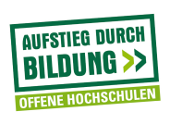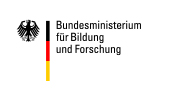Biochemical Sensors / Biochemische Sensoren
Module group: Sensorik / Sensor Technology (Master's degree programme: Sensor Systems Engineering)
Module group: Medical and Biomedical Technological Competencies (Master's degree programme: Biopharmaceutical and Medical Engineering Sciences)
The world-wide needs for chemical detection and analysis rise steadily. Several reasons lead to this trend, for instance the rapid increase in the prevalence of diabetes, the increasing need for environmental and health monitoring, new legislative standards for food and drugs quality control or even the early detection of biological and chemical terror attacks. Thanks to higher sensitivity and specificity, short response times and reduction of overall costs, biosensors can be very competitive in addressing these needs when compared to traditional methods.
This module imparts a general overview of biosensors with different points of focus, such as the basics of chemistry and molecular biology, biological detection methods, physical transduction methods, and immobilization techniques as well as biochip technologies.
Introductory Lecture
- new dates will be announced
The Description of the module you find here.
- Introduction to biosensors
- Review of the basics of chemistry and molecular biology
- Biological detection methods: catalytic, immunologic, etc.
- Physical transduction methods: electrochemical, optical, gravimetric, etc.
- Immobilization techniques: adsorption, entrapment, cross-linking, covalent bonds
- Biochip technologies: DNA and protein chips, Ion-channel devices, MEA and MTA, Implants
- Student seminars
- Laboratory practice with experimental demonstrations and quantitative determinations of analytes
The world-wide needs for chemical detection and analysis rise steadily. Several reasons lead to this trend, for instance the rapid increase in the prevalence of diabetes, the increasing need for environmental and health monitoring, new legislative standards for food and drugs quality control or even the early detection of biological and chemical terror attacks. Thanks to higher sensitivity and specificity, short response times and reduction of overall costs, biosensors can be very competitive in addressing these needs when compared to traditional methods.
Students can describe basic principles, mechanisms of action and applications of biosensors in different scenarios. After taking this module, participants are able to explain the chemical and physical fundamentals of biosensing. They are further able to analyze biosensors, break-down complex sensors in their elementary components and identify and evaluate every individual function in the information flow, from recognition to transduction and transmission. Students are capable of predicting the effects of elementary components in an integrated biosensor application. Students asses the clinical and industrial applications, differentiate biosensor market sectors regarding technical and economical properties, e.g. commodities for everyday consumer needs or professional equipment for research. Furthermore, they are able to reflect and critically analyze research in the field of biosensors. Finally students are capable of developing appropriate concepts and designs for given biosensing
problems in industry and academia. They are further able to independently derive original solutions for new problems.
The online part of the study programme takes place in self-study and in the form of group work. For the self-study part of the programme, video lectures with detailed information about the contents and an elaborated script are offered. The script has been developed especially for extra-occupational learners in regard to the didactic concept of Ulm University. It contains breaks for independent study, multiple and single choice tests, quizzes, exercises, etc.
Your mentor will offer online seminars in periodic intervals. These seminars will help you to handle the exercises and work on the learning topics.
An online forum for exchange with the other students will also be available.
Requirement is a first academic degree.
Basic knowledge of chemistry and biochemistry help in understanding the biological part of biosensors.
Recommended requirements:
- Desktop computer or notebook, with a supported version of Microsoft Windows, Apple macOS or Linux
- Headset
- Current version of Mozilla Firefox, Google Chrome, Apple Safari or Microsoft Edge
- Access to the internet (e.g., via xDSL, Cable, LTE, 5G) with a minimum data rate of 3 Mbit/s for downstream and 384 kbit/s for upstream.
In case of questions regarding the technical requirements, please don't hesitate to contact us.
Written exam: 2 h
For admission to the exam the following requirements have to be met:
Successful completion of a seminar of 15 minutes and the evaluation of the data from the laboratory experiments. In case of hardship the candidate can write an informal request to the coordinator in order to be given admission to the exam. In case of sickness a doctor's certicate has to be submitted to the coordinator.
After finishing the module successfully you will get a certificate and a supplement, which will list the contents of the module and the competencies you have acquired. The supplement confirms the equivalent of 6 credit points (ECTS).
Lecturer

Dott. Alberto Pasquarelli
Institute of Electronic Devices and Circuits

Gefördert von:



